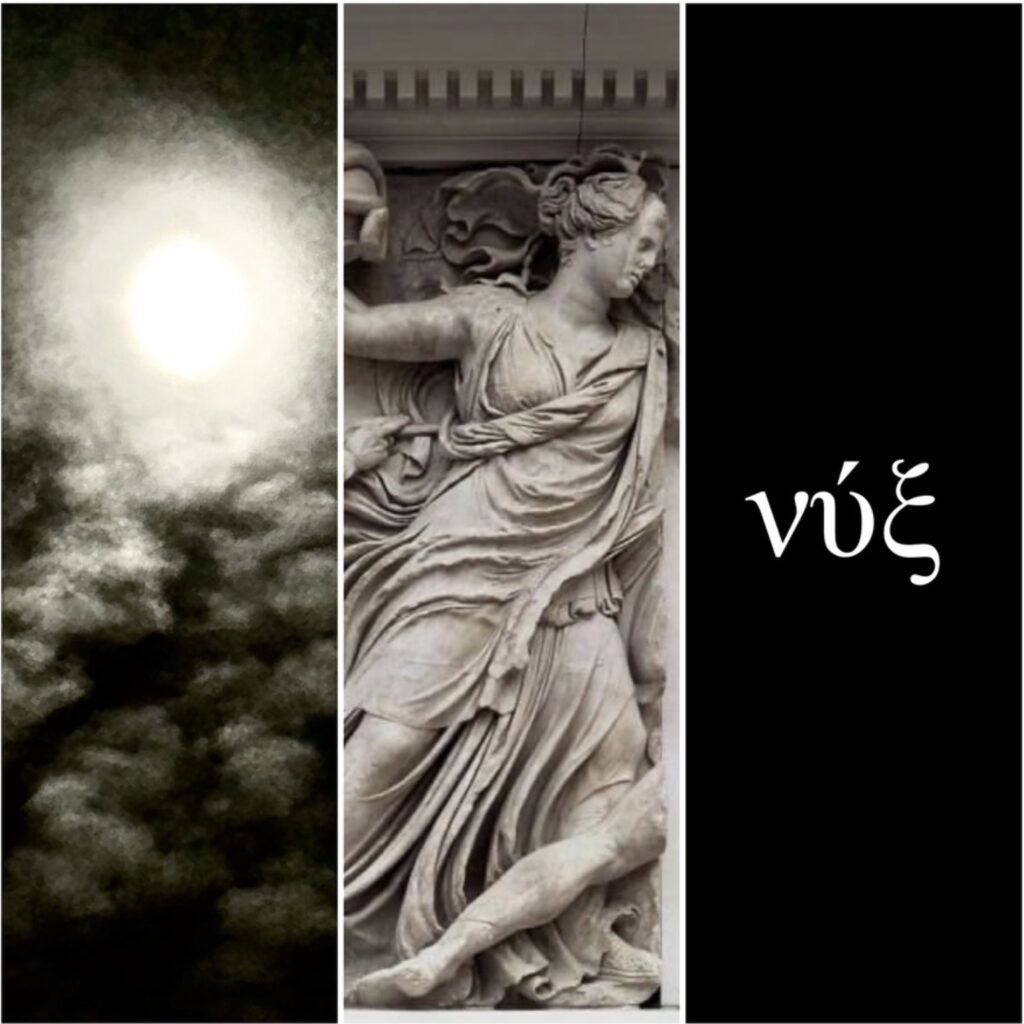The Ancient-Greek word ἄγαλμα (agalma) did not merely designate a statue, which we wrongly take to be its most common meaning. In Homer, it is the precious object desired by everyone that embellishes, by making it shine, the harness of the horse of the best among the warriors – in short, it is the treasure that reflects and bestows glory. In Aeschylus, it is the lock of hair that Orestes places on his father’s ruined tomb as an offering after offering a similar one to a nearby river god, since water gives life – as does a beloved’s lock of hair secretly placed by a lover in a locket. And it is in Plato, as Lacan remarks, the intangible but glowing inner quality, synonym of knowledge, that causes Alcibiades’s crush on Socrates. What Lacan failed to see (by supposing that, enclosed in the Symbolic order, we try in vain to recover a lost Real that the Imaginary attempts at substituting ineffectively) is that, here and there, the ἄγαλμα owes its power to the fact that, in it, the Real, the Imaginary and the Symbolic become iridescent. Think, for instance, that the ἄγαλμα is, too, a child’s magic object which empowers the child to walk safely through the forest when the sun sets, and that, in this sense, it resembles the notion of *bayja* among the Ache in Castres’s Chronicle of the Guayaki Indians, which must be viewed as a kind of incorporeal ἄγαλμα. For in it two real facts, giving birth and aging\dying, are grasped in their symbolic correlation, which makes possible the reciprocal articulation of their respective concepts; while the imaginary jaguars that allegedly haunt the father when the child is born – jaguars that he must go out to meet in order to reaffirm his own being in the world – serve to stitch those two dimensions (real and symbolic) by means of a third one at once liminal and po(i)etic. The ἄγαλμα, then, as a threshold… Or, say, to think of yet another example, Nύξ (Nyx, Night) in her quality of goddess, which supplements by personifying it,the night’s terrifying power to darken the world (a perfectly real power) and precedes the transformation of such power into a concept (the night as opposed to the day), concept of which our current words (tonight, last night…) are but the shadows. In the end, then, it may not be the Real we have lost, but the ἄγαλμα: the magic (visionary and poetic) capable of bringing together experience and thought as something more than the encounter between words and things (or, even worse, the planing of things by means of an impoverished language).

